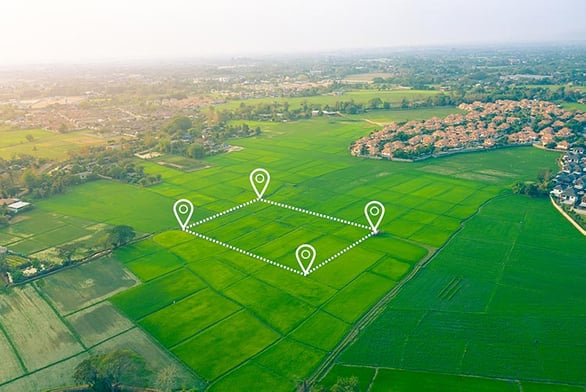
No one will likely soon forget the many painful financial lessons learned during the Great Recession, especially real estate investors who saw their property values plummet by more than half when the U.S. housing bubble burst in 2008.
There were silver linings to come out of the worst economic downturn since the Great Depression of the 1930s, however. The Investing in Opportunity Act, part of the larger Tax Cuts and Jobs Act of 2017, incentivized private investment in economically challenged areas and communities in an effort to revitalize low-income census tracts, which were named Opportunity Zones.
These tracts were based on 2010 Census data, and with the 2020 Census now complete, and extensive redistricting in the works, some investors have wondered if there will be any additional Census tracts designated as QOZs in light of the new Census data.
Below we’ll take a look at how many new Census tracts might become available, as well as some of the potential benefits of investing in a Qualified Opportunity Zone.
What Are Qualified Opportunity Zones?
There are currently more than 8,700 federally designated Opportunity Zones in the 50 U.S. states, Puerto Rico, and the U.S. Virgin Islands.
The main purpose of this economic development initiative is to spur long-term private capital investments in economically challenged neighborhoods and geographical areas throughout the country and U.S. territories using tax incentives. There are three primary ways those incentives can prove attractive to real estate investors:
- Investors who roll capital gains from the sale of investment properties into QOZs within 180 days from closing can defer their capital gains tax liability until Dec. 31, 2026.
- Investors who hold QOZ investments for at least five years can defer 10 percent of capital gains taxes.
- Investors can realize tax-free appreciation on their QOZ investments if they hold them for a decade or more.
Theoretically, investors who roll capital gains proceeds into QOZ investments are putting untaxed dollars back to work for an additional five years before facing any tax liability, which can potentially provide greater leverage for that capital pool.
Will There Be any New QOZs for 2021?
The nation’s most populous states -- California, Texas, Florida and New York -- have the most Qualified Opportunity Zones (QOZs) with hundreds of designated Census tracts in each state. These QOZs provide investors with potential investment opportunities in every corner of every state in the U.S., although many investments may ultimately prove unfeasible despite attractive QOZ tax breaks.
The question of whether any additional census will be designated following the 2020 decennial census was addressed in IRS announcement 2021-10, which stated:
“...this announcement confirms that the boundaries of the Designated QOZs were established at the time they were designated and are not subject to change.”
In other words, the 2020 Census will have no bearing on previously designated QOZs.1
The Bottom Line
The Tax Cuts and Jobs Act of 2017 required government officials in each state to nominate potential QOZs by the end of 2018, a deadline that continues to be in effect. Despite the redistricting that’s sure to come as a result of the 2020 Census, investors won’t see any additional QOZs or any changes to existing QOZs.
1. 2020 Census Results Have No Impact on Boundaries of Opportunity Zones, JD Supra.com, https://www.jdsupra.com/legalnews/2020-census-results-have-no-impact-on-3195022/
This material is for general information and educational purposes only. Information is based on data gathered from what we believe are reliable sources. It is not guaranteed as to accuracy, does not purport to be complete and is not intended to be used as a primary basis for investment decisions. It should also not be construed as advice meeting the particular investment needs of any investor. Realized does not provide tax or legal advice. This material is not a substitute for seeking the advice of a qualified professional for your individual situation. An unfavorable tax ruling may cancel deferral of capital gains and result in immediate tax liabilities.



